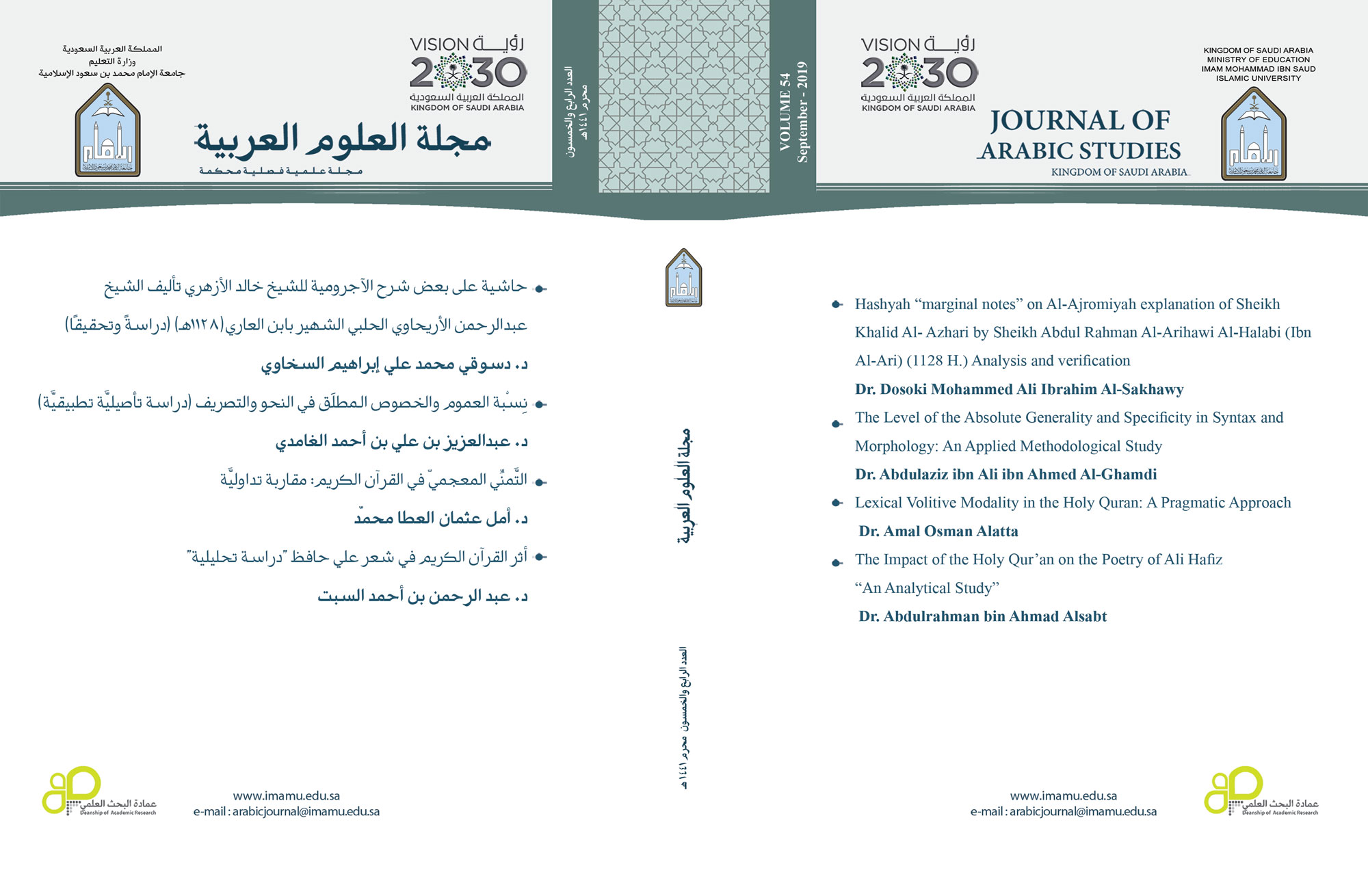Lexical Volitive Modality in the Holy Quran: A Pragmatic Approach
Abstract
This paper aims to approach the lexical units expressing ‘wish, desire, etc.’ in the Holy Quran using pragmatics approach, to reveal the meanings of the Quranic discourse, and the speakers intents from a pragmatic perspective. Lexical items have no meaning on their own right when isolated from the context where it is uttered; besides, their meanings vary from one context to another.
The paper concentrated on studying the concept of ‘volitive modality’ among the linguists, rhetoricians, grammarians and etymologists, as well as the original concept in pragmatics. Fifteen verses are examined; each of which included a lexical unit that involves a volitive meaning, explaining the semantic differences between them and volitive mode, and the illocutionary force strengthening their indirect meanings on one hand and weakening their direct ones on the other hand, to discover the mechanisms of communication using the indirect style of votility mode.




